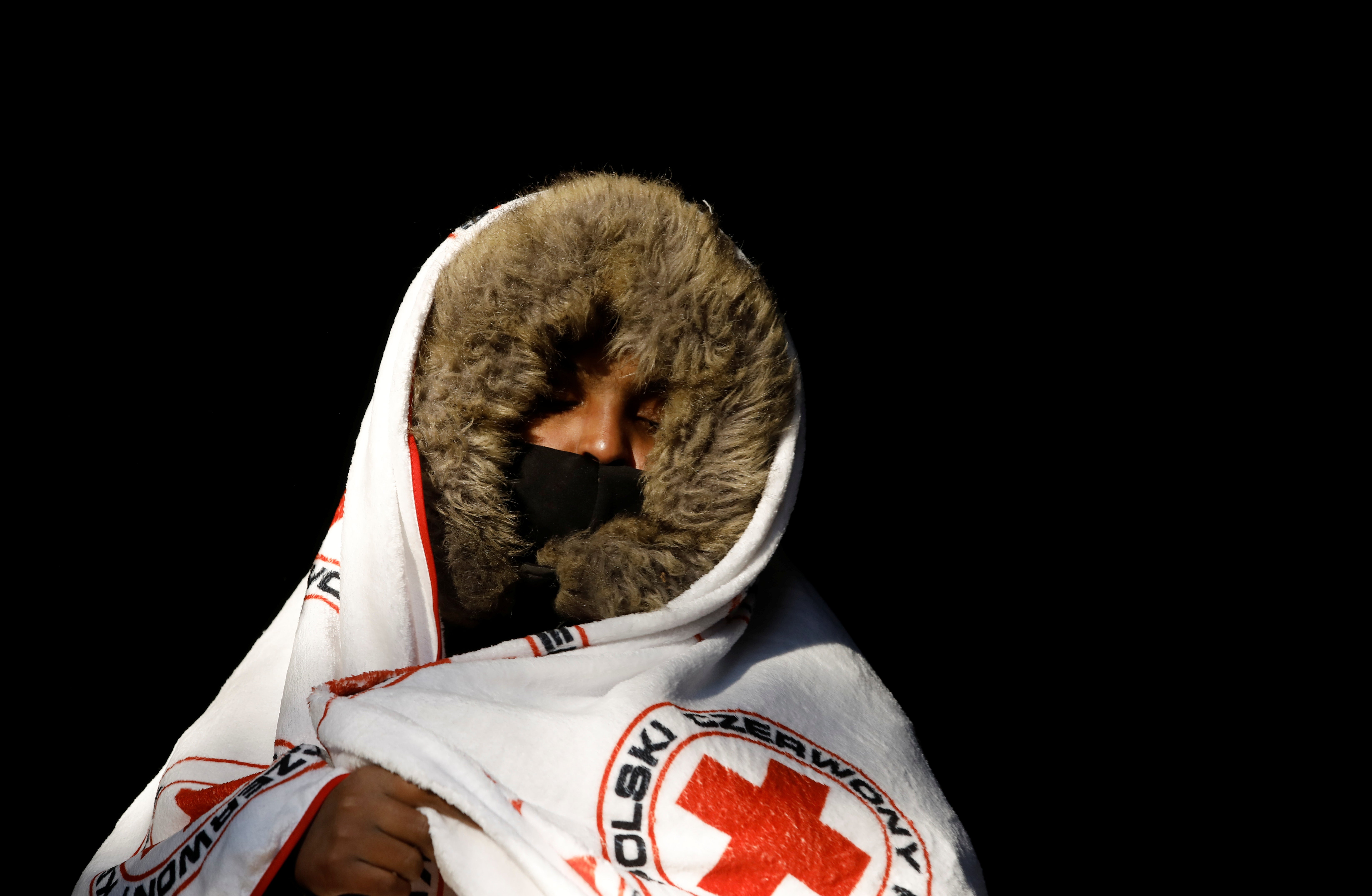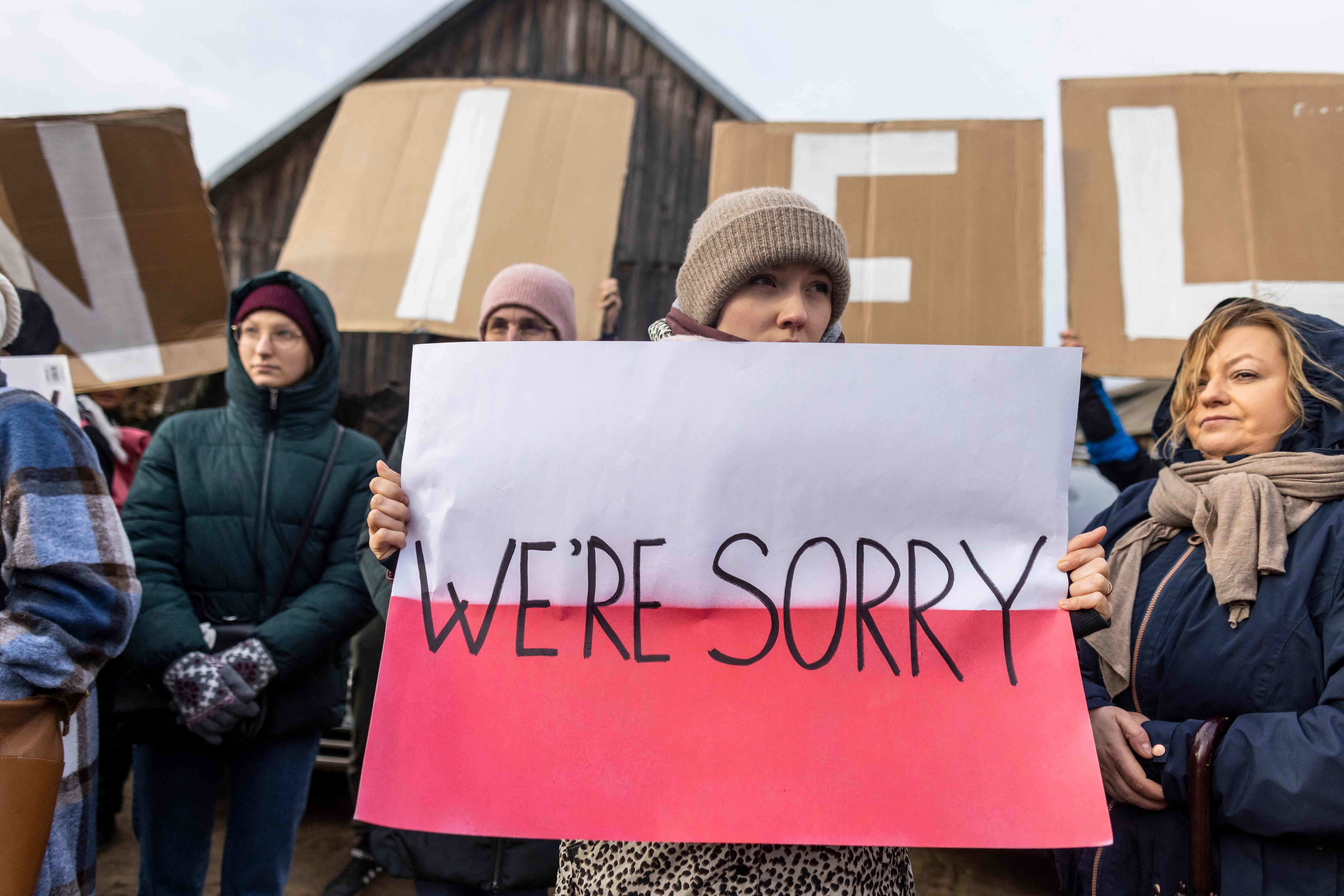Poland militarises border to stave off migration influx from Belarus as human tragedy unfolds
Poland will man the border with 10,000 troops as ‘inhumane’ situation develops putting the most vulnerable at greater risk, reports William Nattrass

Poland’s military presence at its border with Belarus is being ramped up to control outbreaks of violence after migrants attempted to break into the country at the weekend.
Ten thousand troops will now man the Polish border amid an ongoing state of emergency in an area 3 kilometres deep.
Tens of thousands of migrants are believed to have attempted to cross from Belarus into the Schengen Zone in recent months, most of them from war-torn countries in the Middle East.
Duped by the Belarusian authorities into believing the country’s borders are an open gateway to the EU, they have been shepherded to borders with Poland, Lithuania and Latvia.
But instead of safe passage, they are being met with barbed wire fences and conditions described to The Independent by human rights lawyers as “extremely inhumane”.
Eight migrants have been found dead so far in various locations along the border, the latest that of a 19-year-old Syrian man who died after trying to cross the river Bug at the frontier.
Other migrants from the Middle East have been found lying dead in fields and forests in the border region over recent weeks.
Groups of people have been camped outside for weeks, trapped in a no man’s land between Polish and Belarusian border guards as conditions grow ever colder and harsher with the changing seasons.
These conditions led a group of up to 70 migrants to attempt to force their way through the Polish barbed wire fence at the weekend, leading to conflict with Polish border guards. Two guards were briefly hospitalised after rocks and branches were thrown in the melee.
In response to the violence, the Polish Ministry of Defence has now decided to beef up the military presence at the border. There are also plans to construct a wall costing up to €400 million to keep migrants out.
Yet, as events at the weekend showed, it is the lack of adequate humanitarian aid that arguably poses the greatest risk to attempts to keep control of the escalating crisis.
The Polish border police declined to respond to repeated requests from The Independent for clarity on the provision of humanitarian aid for migrants stuck at the border.

Harrowing stories are meanwhile emerging on an almost daily basis. A pregnant Congolese woman said she was thrown “like a garbage bag” over the border fence by Polish guards, suffering a miscarriage two days later.
Unsurprisingly, the Polish authorities are coming in for stern criticism over their handling of the crisis. Yet, it is also widely accepted that the lion’s share of the blame is due to Belarusian president Alexander Lukashenko and his country’s “hybrid warfare” tactics against the EU.
Polish Interior Minister Mariusz Kamiński recently shared a text message being sent out by Poland to migrants trying to cross the border illegally. “The Polish border is sealed. Belarusian authorities told you lies. Go back to Minsk! Don’t take any pills from Belarusian soldiers,” it reads.
The reference to pills follows claims from Lithuanian border authorities that Belarusian officers have been handing out “strange pills” to help migrants survive the border crossing, which supposedly contain methadone.
The influx of migrants encouraged by Belarus is now causing a domino effect at the Polish border with Germany. Hundreds of extra police officers have been deployed, and far-right anti-immigrant groups have gathered in protest.
All this suggests Lukashenko’s tactics to destabilise the EU are working.
Unlike in the 2015 migrant crisis, when Germany played a key role in ensuring a European welcome for those displaced by war, a situation is now emerging in which refugees are seen as a threat to national security.
For lawyers representing people stuck at the border, the only long-term solution to the crisis is a coordinated EU strategy for countering Belarus’s malign actions.
“We expect both the Polish government and the entire European Union to develop a strategy for dealing with Belarusian actions that will help protect the lives of those fleeing wars, not only in light of the conflict in Afghanistan but also in any other future situations of this kind,” Grzegorz Kukowka, a spokesperson for the Warsaw District Bar Council, told The Independent.
For now, though, the Polish government appears focused on short-term fixes.
By deploying thousands of more troops, it hopes to quell violence at the border. But without a proper humanitarian solution, and while Belarus’s actions are allowed to continue unchecked, tensions only seem likely to escalate.






Join our commenting forum
Join thought-provoking conversations, follow other Independent readers and see their replies
Comments